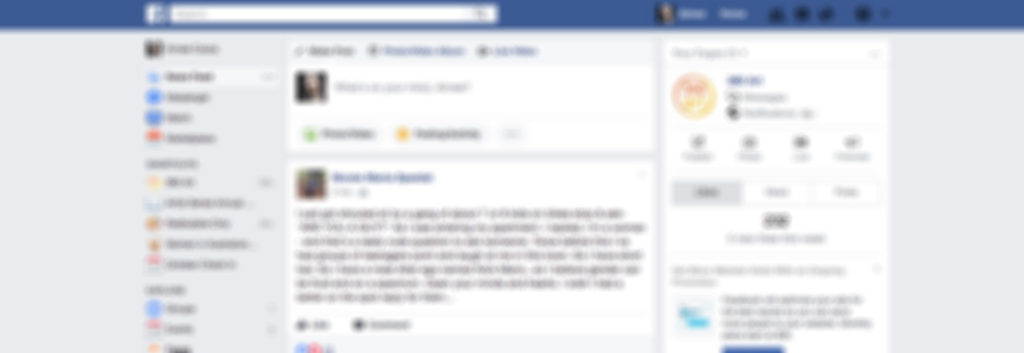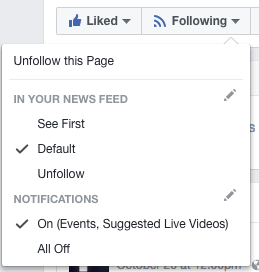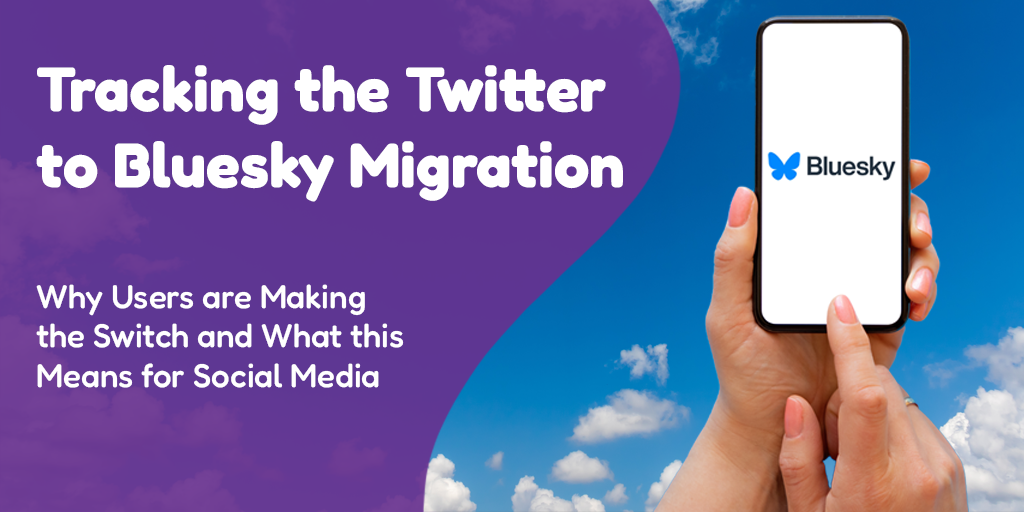 Posted by Aimee Cozza on November 3rd, 2017
Posted by Aimee Cozza on November 3rd, 2017
Recently, my newsfeed was blowing up with people who were very concerned over news articles stating that Facebook was “moving non-promoted posts from the general news feed”. Rightly so if you were to read a headline like that. If you’re a small business or a business that relies on word-of-mouth or social media to sell things without dumping a ton of money into advertising (say, you’re an artist, for one) this can sound extremely scary. However, as with most things people lose their minds over, I sigh, click on it, read the whole article, then explain to people why the sensationalist clickbait headline may not be what it seems.
Welcome to our first blog post in our new category Calm Down, Internet. We’ll go over social media, online marketing, and search engine things that hit the general public that can sound scary but might not be what it is being touted as.
Are Facebook page posts moving out of the newsfeed?
Let’s step back in time for a moment here and think about the history of Facebook. When Facebook first began, it was only for college students. In fact, you had to have a .edu email address in order to sign up. Facebook then eventually opened up to the general public, and we all enjoyed seeing posts from our friends and families in chronological order. If you were on Facebook this far back, you’ll remember that you’d see all kinds of obnoxious things — Spamming of Bit Strips from your friends (all inside jokes that were not funny to anyone else except the creator), people posting what they were listening to multiple times a day all the time… Someone could even hijack your entire feed by just posting over and over and over again. Do you remember when pages weren’t a thing and businesses created profiles for themselves?
Enter the algorithm.

Everyone’s heard of “Facebook algorithms” and various other social media algorithms. Essentially, what Facebook tried to do was weed out all of the garbage posts users don’t like to see on their feed. With this came the ability to hide individual posts, hide individual people (without unfriending them), and lots of other things. While many of us (myself included) prefer to see posts in chronological order (most recent) and see what friends I haven’t hidden have to say, Facebook has found a lot of success in their current algorithm on only showing posts that have gained traction or attention (top posts, top comments).
In an attempt to make Facebook less annoying, Facebook only shows posts that have had some sort of attention on them. What this means is that if no one likes, shares, or comments on a post, no one will see it. There is a threshold for the Facebook algorithm to bring a post into someone’s news feed. This is a double edged sword — how can someone interact with something if they never see it? This is why interacting with pages you like the most is important. The more you interact with a page, the more of its posts you’ll see. You might have one page you’re liking constantly that just seemingly floods your news feed — that’s an example of the algorithm working.
Understanding how the algorithm works will help you to understand how businesses and pages work, as well. At one point you could see every single business page post — which can be annoying if the page posts twenty times a day — and then Facebook knocked those page views down by tweaking the algorithm. It’s no secret that paid/sponsored posts get far more traction than an organic post, but why wouldn’t you? You’re essentially paying a premium to bypass Facebook’s algorithm — but only after your post has been approved by Facebook’s team.
What is this I read about the posts moving from the news feed?
The skinny is that Facebook is trying out a new feed in a few select countries — Sri Lanka, Serbia, and Slovakia being three of them. What they are testing is having two feeds — one for friends and family, and one for non-promoted posts from pages and businesses. A business can choose to cross posts onto the friends and family feed by paying for “sponsoring” or advertising.
What does that mean for page reach?
Organic page reach will pretty much drop, with the exception of your very loyal followers who constantly interact with your page or have set your page to notifications. Users who are in these test countries report 60-80% drop in organic reach.

Let’s talk about what that really means, though.
On one page I run, I have 2,830 Likes. Of those, 2,813 people are following my page with the default setting. On a typical regular unshared post, I see roughly a reach of 100 people — this is called organic reach. If someone likes this post, it can go up to around 200 people. If I share it with a group I’m part of, it’ll usually get to about 700 people. That means that the average unshared non-promoted post already only reaches 3% of people who like my page. 3%! That’s a tiny sliver of your market and of people you’ve already captured to enjoy your page by liking it. If your organic reach gets docked 60-80%, that means you’ll only be reaching about 1% of your audience of your page.
If you’re a page without a lot of followers, this won’t mean much. A typical page with about 300 likes only gets around 15 people reached organically. However, you can’t discount those 15 people — anyone who likes or shares your post can help jettison it into a bigger organic reach. But finding that magical post that people will all like and all share can be hard.
Why is Facebook doing this?
There are lots of reasons why Facebook may consider this sort of a thing. The first one is to try to curb the spread of fake news. Think about it — if a page with a lot of followers shares something false, how quickly can that spread? Facebook has been found negligent in the spread of fake news during the 2016 election. Since the tested 2 feed system will work a lot like your “Other messages” or “Message Requests” inbox on Facebook Messenger (oh, you didn’t know that existed?! It does! It’s a place where all non-friend messages go) or your Page timeline (this exists too!) and pretty much no one except Facebook gurus will look at it, it’s to imagine not many people will be looking at the organic posts.
Which means anyone that wants a post to be seen will have to pay. If they pay, Facebook has to approve it, leaving at least a discerning eye (or algorithm) to look over the post. While this didn’t help during the 2016 election, it may help in the future, especially if Facebook actually has people looking at these promoted posts.
Facebook is also a for-profit business, so looking to create more revenue via advertising makes sense.
This can be a good thing.
Good? How could it possibly be good?
Here’s why. Every week I spend hours and hours on Facebook — and not in the typical user sense. I’ll be curating posts for pages, writing them, tagging them, tagging other pages, answering questions, keeping pages up to date, current, and active. It’s a lot of work, as any page manager can tell you. You want to post, but not too much, so you don’t scare people off. You want to stay active so people know your page isn’t a defunct page or business. You want to keep people engaged with your content. It’s so. much. work.
If Facebook takes away most of our organic reach, what’s the point of posting multiple times a week or day to a business page if no one will see it? None! What will you do with all of that time and money you’re not spending keeping your business page updated on Facebook? Well, write one really, really good post and sponsor it so people will see it!
Lastly, what Facebook said.
It’s incredibly important to note that Facebook says it has no plans to use this “dual feed” globally. They are testing the market currently with their trial in these countries, and it has the potential to backfire spectacularly. We are doubtful that Facebook will roll out this change, but as with anything, beta testing a new feature is an important way to see how it will impact users — and whether or not it will work.



